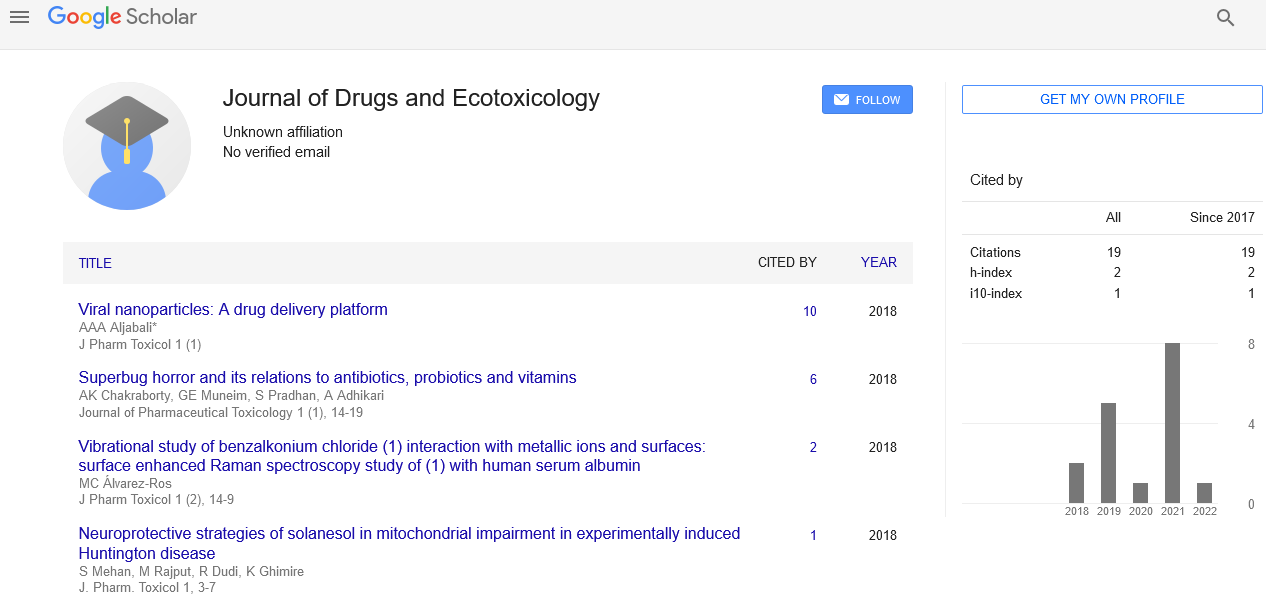
Sign up for email alert when new content gets added: Sign up
Abstract
Neuroprotective strategies of solanesol in mitochondrial impairment in experimentally induced Huntington disease
Author(s): Sidharth Mehan*, Manju Rajput PhD, Rajesh Dudi PhD and Krishna Ghimire PhDHD is an autosomal dominant neurodegenerative disease characterized by functional incapacity, psychiatric impairment and memory dysfunction. Numerous pathological cascades are implicated in HD pathology, of which excitotoxicity and impaired cellular bio-energy are of major concern. Exploitation of these major pathological cascades shall prove to be efficient in slowing down the disease progression in HD. The existing treatment strategies include anti-psychotic drugs, NMDA receptor antagonists, caspase inhibitors, coenzyme Q10, transglutamine inhibitors, human single chain FV antibody, RNAi, stem cell therapy, ubiquilin and trophic factors. Despite of various advancements in HD research, no treatment strategy was found to be effective to cure or to combat all the symptoms associated with the disease. Hence currently, Solanesol is a phytochemical that can influence different pathological pathways and facilitate the amelioration of all symptoms can be considered to be potent in the management of HD Herein; an attempt was made to explore the neuroprotective protective strategies of Solanesol in mitochondrial impairment induced by 3-NP animal model of Huntington disease. This put forward the possibility of a novel neuroprotective therapy to ameliorate the major pathological features and to slow down the disease progression in HD.
Full-Text | PDF




